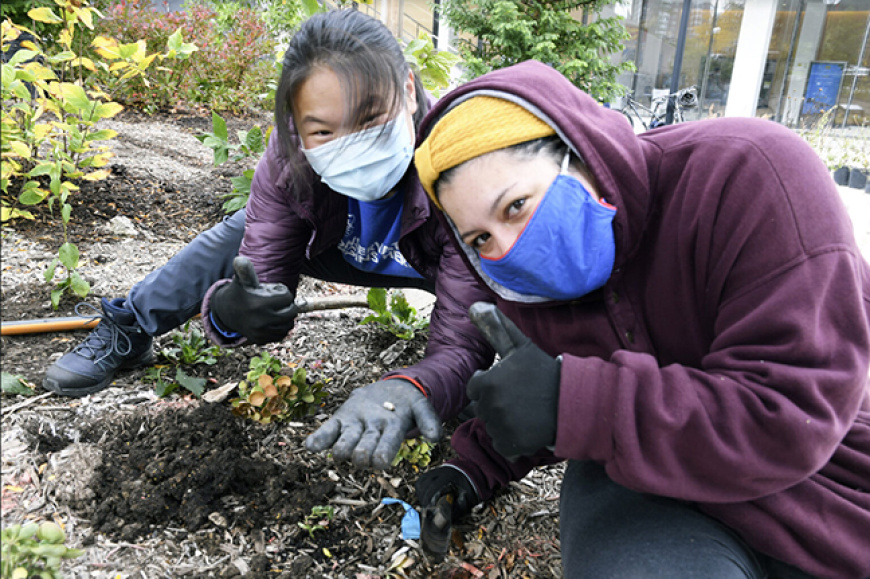
 back to all news
back to all news
Ann Arbor campus joins Bee Campus USA movement

The University of Michigan’s Ann Arbor campus is now certified as a Bee Campus, reflecting its commitment to pollinator conservation.
Bee Campus USA is an initiative that encourages academic institutions across the United States to engage in pollinator conservation.
Pollination is essential for the reproduction of more than 85% of the world’s flowering plants, including more than two-thirds of the world’s crop species, according to the Xerces Society for Invertebrate Conservation.
Yet pollinator populations are declining, putting food supplies at risk.
Determined to help reverse this trend, U-M has followed pollinator-friendly landscaping practices for decades, including installing native-plant gardens and reducing pesticide use. In 2019, U-M achieved its goal to reduce chemical applications to Ann Arbor campus landscapes six years ahead of schedule.
To build on this progress, the Office of Campus Sustainability and Grounds Services partnered with the School for Environment and Sustainability to sponsor a master’s degree capstone project to enhance pollinator conservation efforts and strive for Bee Campus USA certification.
The students — who affectionately referred to their team as “SEAS Bees” — laid the groundwork for certification.
“It’s always wonderful collaborating with a group with whom you share a mission,” said Bill Kronberg, horticulture supervisor for Grounds Services.
“The SEAS Bees group’s vision of pollinator protection aligned perfectly with Facilities and Operations’ goals. We learned a lot from one another. The Bee Campus USA certification was really the icing on the cake.”
The Ann Arbor campus joins UM-Dearborn as a Bee Campus USA affiliate. UM-Dearborn achieved certification in 2019.
Bee Campus USA affiliates commit to creating or enhancing pollinator habitat each year by increasing the abundance of native plants, providing nest sites and reducing the use of pesticides.
Other requirements include incorporating pollinator conservation into courses or continuing education opportunities, offering service-learning projects to enhance pollinator habitat, and establishing a standing committee to advocate for pollinators.
The committee, U-M Ann Arbor Campus Pollinators, includes students, faculty and staff who support pollinator conservation on campus. Those interested in participating can email [email protected].
In addition to sustainable land management, U-M is pursuing universitywide carbon neutrality, as well as a number of commitments toward waste reduction and community engagement.

